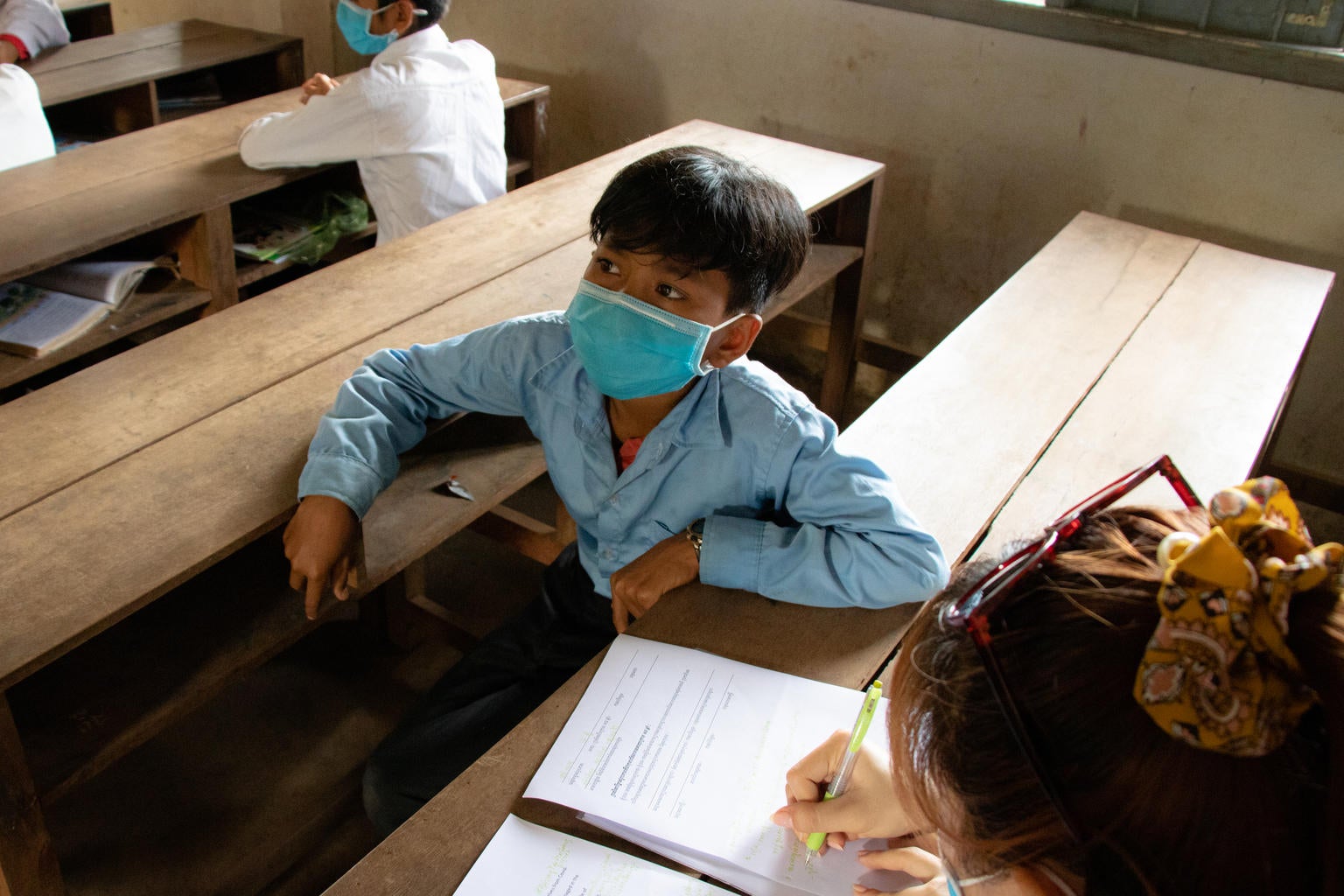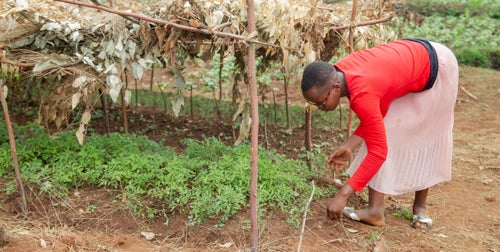“When school closed, I really missed it, I just wanted to go back... I’m much happier now, knowing I can learn again. In fact, I want to become a teacher to pass on knowledge to others,” says Saev, 12.
Schools in Cambodia have opened their doors for the first time since the coronavirus pandemic forced closures six months ago. Children like Saev are finally able to learn, play with their friends again, and most importantly continue their education.
But the classroom is looking different than before. Students wear masks, practice psychical distancing and have their temperatures checked to reduce the spread of coronavirus.
UNICEF is working with Cambodia’s Ministry of Education Youth and Sport to ensure all schools can open safely by developing guidelines and providing schools with soap, hand sanitiser, temporary handwashing stations and thermometers.
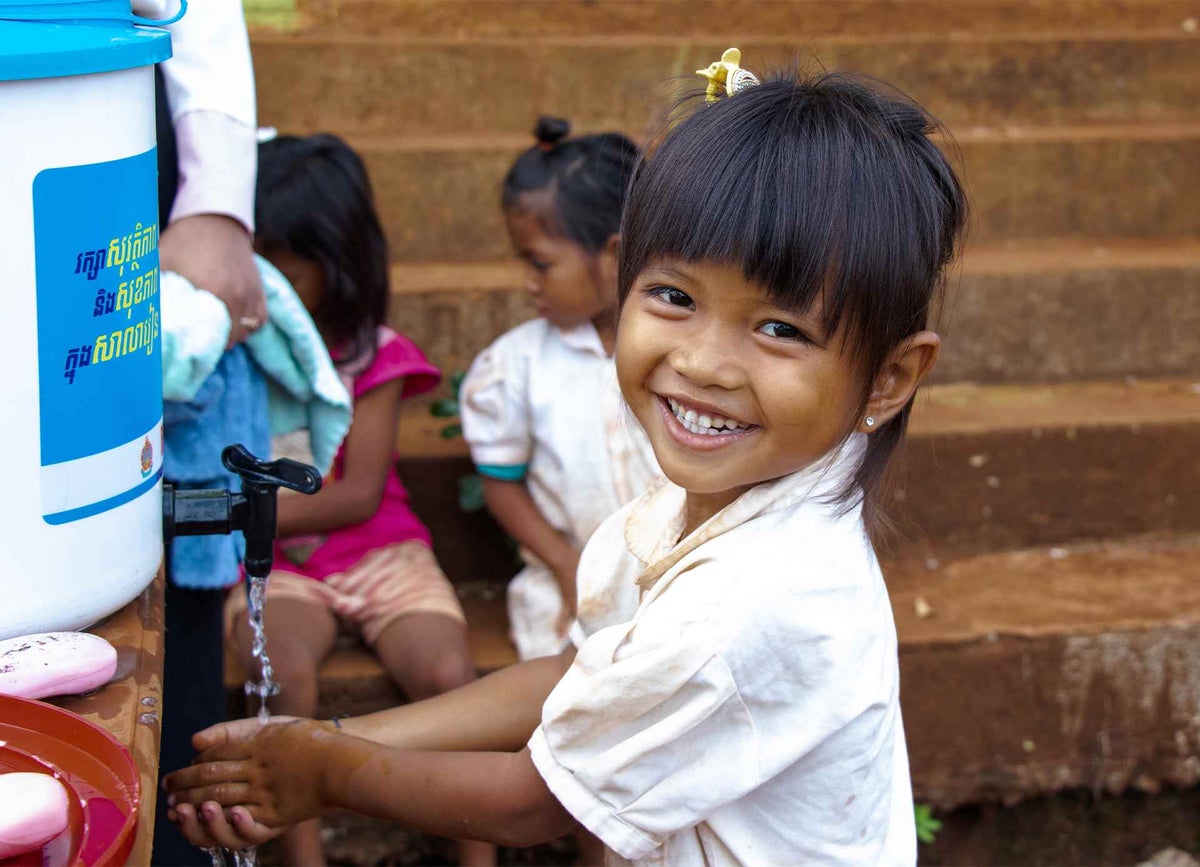
The return to school has been a welcome relief for both students and teachers. Tean teaches in a school serving one of Cambodia’s indigenous communities in the remote province of Ratanakiri.
“I felt so upset about my students earlier this year, worried they would drop out forever,” he says, the day after his school re-opened.
“Now I’m much happier because I know we can bring them back …I just want them to finish their education, so they go on to a better life, for them and their families.”
Cambodia has made terrific progress in educating its children, with 90 per cent of children now enrolled in primary school.
Yet, too many are falling behind due to a lack of quality teaching and basic infrastructure such as water and sanitation facilities. Then COVID-19 closures affected more than 3 million children across the country, with the scale of the crisis threatening to roll back years of progress.
"I just want them to finish their education, so they go on to a better life, for them and their families"
Since day one of the pandemic, UNICEF has been working closely with the Cambodian government to keep every child learning. Finding alternative ways to learn from home and rebuilding a routine has been a critical part of UNICEF’s response.
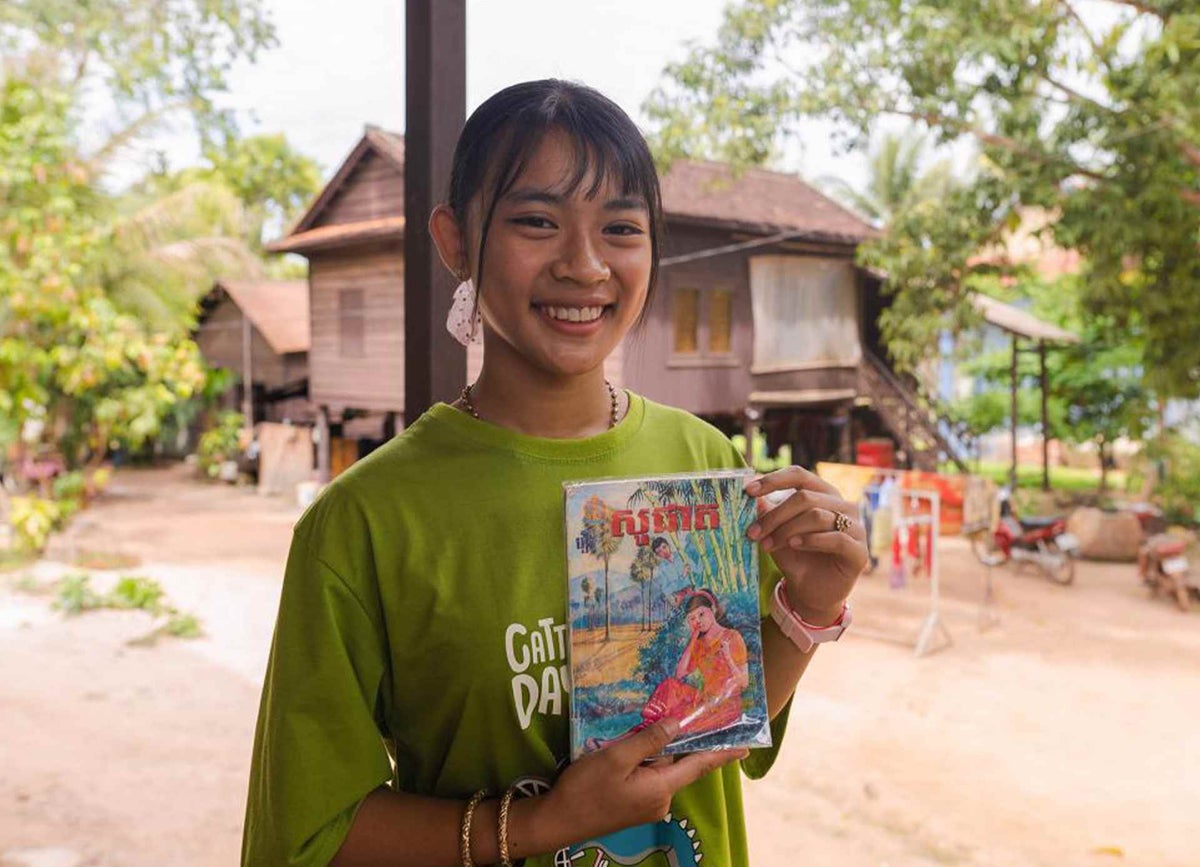
When school closed for 13-year-old Nearadey, classes moved online and students used Facebook messenger to receive lessons from their teachers and to send back their homework.
“But then, our teachers realised that this was not enough, especially for students who do not have any smart devices,” says Nearadey.
This digital divide posed a serious challenge to distance learning during the crisis, and risked widening the gap between rich and poor students countrywide.
To prevent this and ensure that learning was not over just because schools were closed, UNICEF worked alongside the government to provide online ‘e-learning’ classes not only through social media platforms but also through TV and radio, aiming to reach every household in the country.
There were also worksheets available for students to collect from school campuses, giving them an opportunity to talk to their teacher face to face.
“I wish more students who do not have smartphones or internet at home could come to school to pick up lessons and homework in hard copies,” says Nearadey, who helped to distribute the printouts with other students.
“If they don’t understand the lessons, they can ask me or teachers so they still can catch up with their study.”
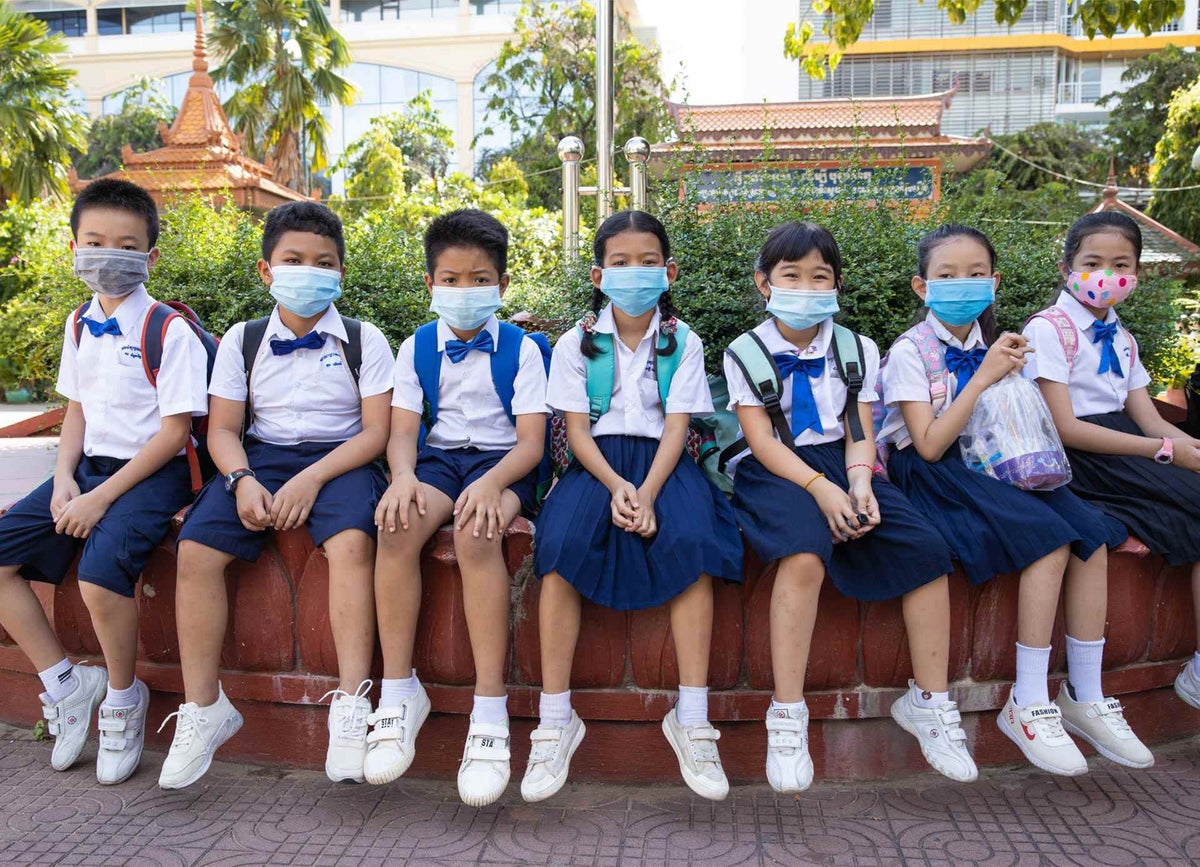
Most schools in the East Asia and Pacific region have now reopened, meaning students like Nearadey can benefit from being back in the classroom.
Yet, more than 2.6 million children the region are still at risk of permanently dropping out of school in the wake of COVID-19.
UNICEF works to ensure children can access quality education, no matter the circumstances and will continue to work with governments and partners to support the safe reopening of schools across the East Asia and Pacific region.
Related articles
Stay up-to-date on UNICEF's work in Australia and around the world



